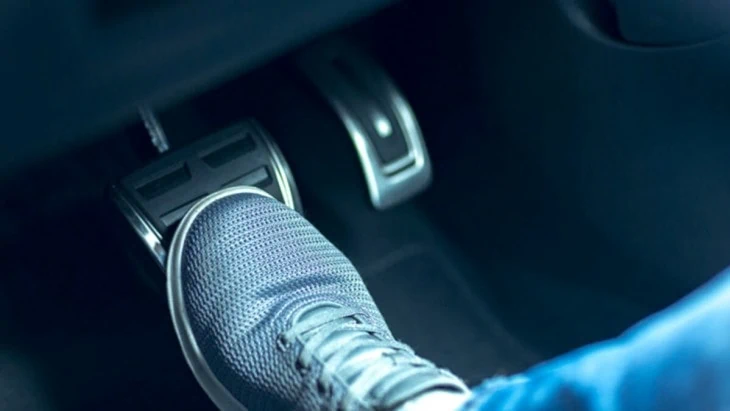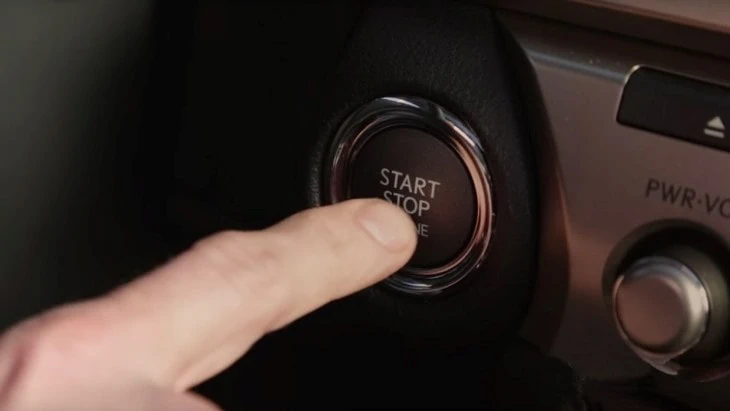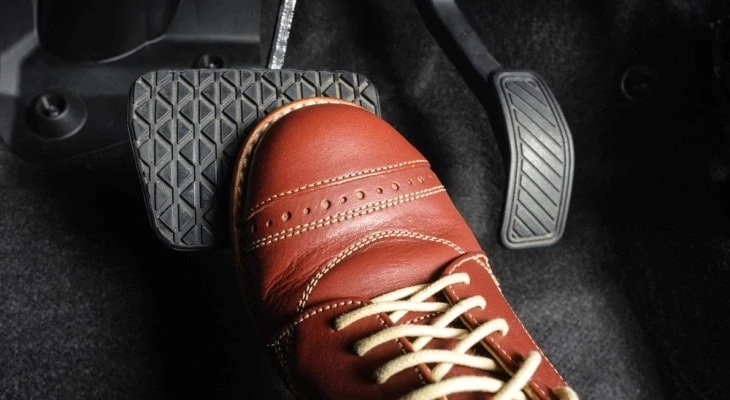There’s a lot going on in modern cars, and it can be frustrating and confusing when yours won’t start. The only thing that could make matters worse is a second issue to go along with it, like a stiff brake pedal.
But what if the two are related? Let’s talk about a few of the possibilities.
There are a few situations that will have you wondering why your car won’t start and its brakes feel stiff. A bad battery or starter will keep your engine from starting, while a leaking brake booster can make your brakes feel stiff. Mechanical or hydraulic issues in the brake system can also cause a stiff brake pedal.
Table of Contents
The Two Problems

First, let’s separate these two issues. Understanding what causes them by themselves will help put the pieces together about how they can relate to each other.
Car Won’t Start
For your car to start, a lot of things need to happen. You need a good battery, an engine that will run, gasoline (or diesel) and a working starting system. As you can see, the list of possible causes for a no-start condition can get pretty long.
Most commonly, a bad battery is what keeps engines from starting. Many auto parts stores will test them and replace them for free if needed, you’ll just need to pay for the battery itself. This can cost anywhere from $150 to over $300.
Getting Stiffed by the Brakes
Generally, a stiff brake pedal is a sign of some kind of brake booster issue. The booster uses vacuum (suction) from the engine to make it easier for you to put force on the brake pedal.
If it has an air leak or isn’t getting enough vacuum, you’re going to notice the pedal becoming more difficult to push down.
It’s worth mentioning here that the booster only works when the engine is running. You’ll get one or two good brake uses once the engine is off, but after that braking can be very difficult.
If the car sits for a few hours, the built-up vacuum will usually dissipate, and the pedal will feel stiff as soon as you get in the car until the engine is running.
How Do These Two Relate?
Now that I’ve covered individual causes behind a stiff brake pedal and the consequent starting problem, let’s take a look at what can cause them to happen at the same time. Maybe you can already guess some of them.
No Start and Normal Brakes
Yes, that’s right! It’s possible that you only have a starting problem, and your brake booster has just run out of its “reserve” vacuum.
If the car has been off for a while, it’s normal for the vacuum to run out, and this will cause the pedal to feel stiff. You may just be dealing with one issue instead of two!
This applies mostly if the engine is not cranking at all. If you hear a loud CLICK when turning the key it could mean a faulty starter motor. However, if the engine cranks very slowly or you hear lots of fast quieter clicks, it’s more likely to be a battery issue.

In this case, it’s sort of the opposite of the last possibility I mentioned.
If you have a push-button start, or “smart key” system, the car’s computer needs to get an electronic signal from the brake pedal before it will start the engine. Even if you’re pushing the start button!
If you have a push-button start and this is happening to you, it is possible that you have a serious issue with the brakes. So much so that the pedal is too stiff for you to be able to push hard enough on the brake, and the computer doesn’t get the signal.
For safety reasons, it will not start the engine without getting that signal.
You can try pressing extra hard on the brake pedal and pressing the start button. If the car starts then you may have a mechanical or hydraulic issue keeping the brake pedal from moving freely.
Significant Vacuum Leak

The last stop for today is also probably the least likely. Your engine can’t run if there’s a very large vacuum leak. As you already know, most brake boosters use vacuum to operate. With a large vacuum leak, it won’t be able to keep up and the pedal will feel stiff.
In this situation, the problem will be very tricky to find, but you can start by checking the smaller rubber hoses attached to your engine. If there are significant cracks or breaks in some of them, chances are, there’s a vacuum leak. Try sealing off any cracks or replacing the affected hoses.
My Advice
Remember, you’re not alone, nearly every car will face some sort of starting issue at some point in its life. Before I wrap up, I’ll leave you with a few last pointers that may help you avoid such a problem in the future.
- A portable jump box (such as this one) can get you going if the battery is weak. These days you can find them for as little as $60 (the average price tends to be around $100).
- Keep your battery and brakes well maintained, and get regular inspections to make sure they’re in the best shape they can be.
- Listen to your car! If something feels off with the brakes or starting. Chances are, there could be an issue waiting to be found.
Good luck and happy motoring!


Have owned my 2015 Genesis from day one. Just this past year, I would let it sit for 4 or more days without being used and found the brake pedal became so stiff I had to use extreme foot pressure to get the pedal to make contact with the brake switch so the automobile would start. (If I use the car every other day – no problem.) Six months ago, our local dealer replaced the starter and battery and said there is nothing else wrong. It still happens after sitting for a number of days. My wife just encountered the same issue this afternoon (car had not been used for four days). Cars still under extended warranty but dealership says I’m not pressing hard enough on the brake pedal!? Where to go and what to do?
Tulsa Hyundai cannot fix my 2017 Genesis G-90, hard/stiff brake pedal—-happens only the first start of the day! That’s when it is difficult to start! Brake booster has been replaced; brake lines have been bled. 9 months on-going! Help!!! —Doug J.